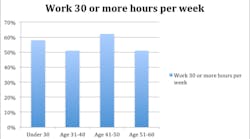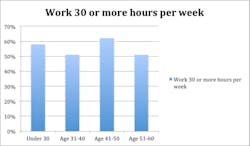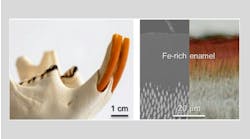The flexibility of the work schedule remains appealing to dental hygienists, who often schedule hours to meet family obligations or other personal interests. Nationally, just 47% of dental hygienists work 30 to 40 hours a week. In addition, 17% of dental hygienists have spent more than 20 years at their primary dental employer.
A veteran hygienist commented, “I have been practicing for 40+ years and I still love my work. I have worked part time, full time, double time, and everything in between. I am fortunate that my career has been flexible with my family needs. I don't think I would change a thing if I were given the chance to do it all over again.”
The statistics in this article are based on the responses of 871 dental hygienists who participated in a “profile” study of the profession. The survey was initiated in February 2014.
------------------------------------------------------
Related Articles
Hygienists report working for multiple offices, dentists
Income power of hygienists and dental assistants in 100 U.S. cities
What are we going to do with Mom?
Notifying patients of relocation
-----------------------------------------------------
One question in the survey asked dental hygienists how many hours a week they work on average. Hygienists of all age groups indicate that work schedules remain flexible throughout a career.
- Hygienists under 30 years of age: 3% work less than 10 hours a week (not including unemployed hygienists); 11% work 10 to 20 hours; 22% work 20 to 30 hours; 53% work 30 to 40 hours; and 5% work more than 40 hours a week.
- Hygienists 31 to 40 years old: 4% work less than 10 hours a week (not including unemployed hygienists); 9% work 10 to 20 hours; 34% work 20 to 30 hours; 46% work 30 to 40 hours; and 5% work more than 40 hours a week.
- Hygienists 41 to 50 years old: 3% work less than 10 hours a week (not including unemployed hygienists); 11% work 10 to 20 hours; 21% work 20 to 30 hours; 55% work 30 to 40 hours; and 7% work more than 40 hours a week.
- Hygienists 51 to 60 years old: 5% work less than 10 hours a week (not including unemployed hygienists); 15% work 10 to 20 hours; 25% work 20 to 30 hours; 45% work 30 to 40 hours; and 7% work more than 40 hours a week.
“I love the relationships I have established with my patients over the last 15 years in our practice,” a hygienist said. “I love my flexible schedule and feel my pay is fair. I am able to have an important career and stay involved in my children's busy schedules by working three days a week. It works great for my family.”
The survey also asked dental hygienists about the number of years of employment at the practice where the dental hygienist spends the “majority” of his/her working time. More than 40% in age groups older than 30 years old have devoted six to 15 years of employment at their primary practice. Among hygienists older than 51 years, 35% have been with their primary employer for more than 15 years.
Five years or less employed at primary practice
- Hygienists under age 30, 80%
- Hygienists age 31 to 40, 47%
- Hygienists age 41 to 50, 22%
- Hygienists age 51 to 60, 19%
Six to 15 years employed at primary practice
- Hygienists under age 30, 14%
- Hygienists age 31 to 40, 43%
- Hygienists age 41 to 50, 41%
- Hygienists age 51 to 60, 41%
More than 15 years employed at primary practice
- Hygienists age 31 to 40, 8%
- Hygienists age 41 to 50, 29%
- Hygienists age 51 to 60, 35%
“In my 20 years as a dental hygienist, I have been fortunate to put myself in the kind of practice situations I want to work in, and that makes being a dental hygienist worth it,” one hygienist noted. “I have been in situations that the team and/or dentist and I did not see eye to eye, so I moved on. I have learned over the years that the environment I work in allows me to be the dental hygienist I want to be. It was through my own professional path that I discovered what I enjoyed about dental hygiene, and I embraced it.”







